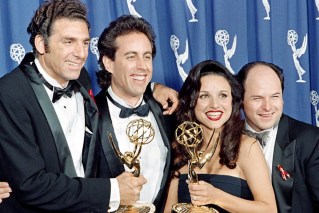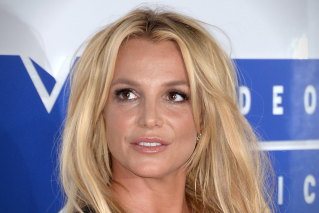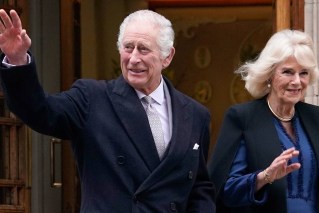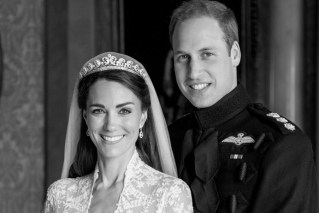Less romance, more hope: What Gen Z wants to see on screens

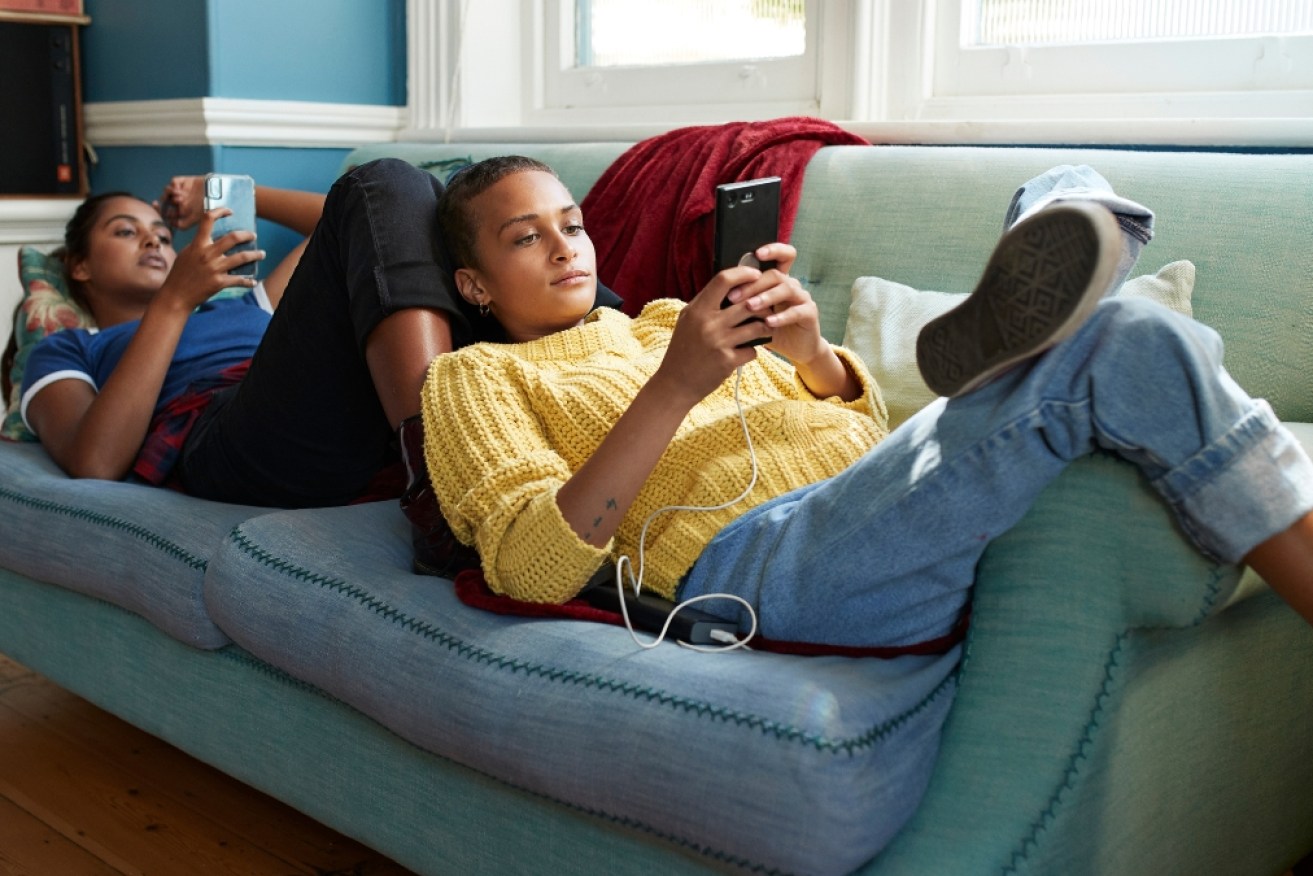
Media helps form young minds, but it’s not currently giving Gen Z what it wants. Photo: Getty
Less derivative love, fewer franchise giants and more hope – that’s what Gen Z wants to see on its entertainment screens, new research reveals.
The University of California’s Centre for Scholars & Storytellers conducted surveys of Americans aged between 10 and 24 to find out what content they like to watch and what media spaces “feel authentic” to them.
The researchers said this age group represented a period of “extended adolescence”, during which young people undergo rapid growth, development, and learning as they discover and adapt to the world around them.
The media they consume plays a key role.
“During this critical period, youth develop a clearer sense of their personal identity through messages they receive from their culture and environment, which is increasingly dominated by media,” the researchers stated.
“Adolescents are using this media for various reasons – from entertainment and play, to learning and communicating.
“With the increased exposure to content and storytelling through various media channels, the need to monitor and ensure positive social-emotional influence during a time of vast change puts an important collective responsibility on today’s storytellers.
“Gen Z’s values and desires reach depths beyond what society has typically explored.”
So, what does Gen Z want out of today’s media content?
Romance is out, platonic love is in
The research found Gen Z has grown tired of stereotypical, heteronormative storytelling that puts romantic and/or sexual relationships on a pedestal – especially toxic ones.
Instead, more than half of the young people surveyed wanted to see an increase in friendships shown on screen
More than 44 per cent of Gen Z felt romance is overused in media.
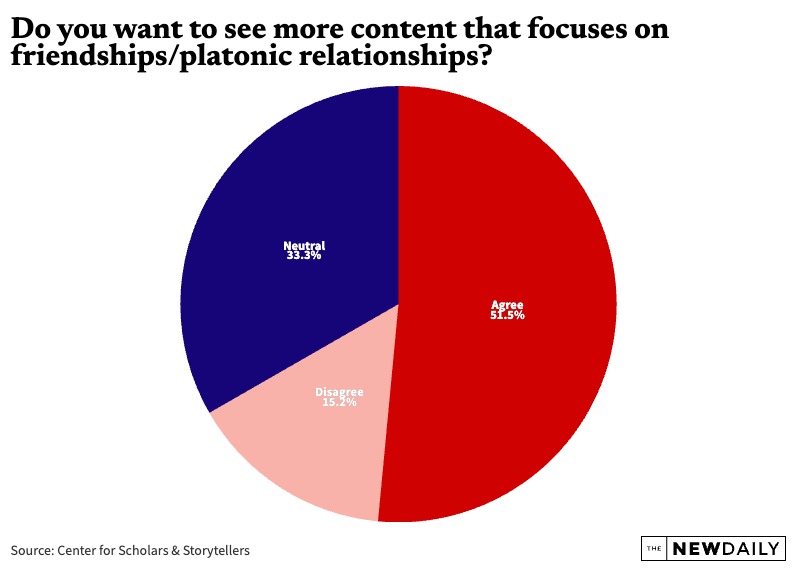
Some of the most disliked media stereotypes included relationships being necessary to be happy, male and female leads always having to end up together romantically, and love triangles.
These values reflect an emphasis on platonic relationships among the Gen Z cohort; a survey by Harris Insights & Analytics found 56 per cent of American Gen Z said they noticed more of their friends were choosing to be single.
Gen Z wants to binge relatable, uplifting stories
Much of the media landscape is flooded with information about the luxurious lives of celebrities, but Gen Z has had enough.
Only 10.5 per cent said they preferred to watch aspirational stories about the rich and famous; instead, the majority wanted to see relatable issues that mirror their personal life, followed by real-life issues that affect society.
Franchise fatigue seems to have set in, with the majority of Gen Z favouring original content over IP-based content such as franchises, adaptations and remakes.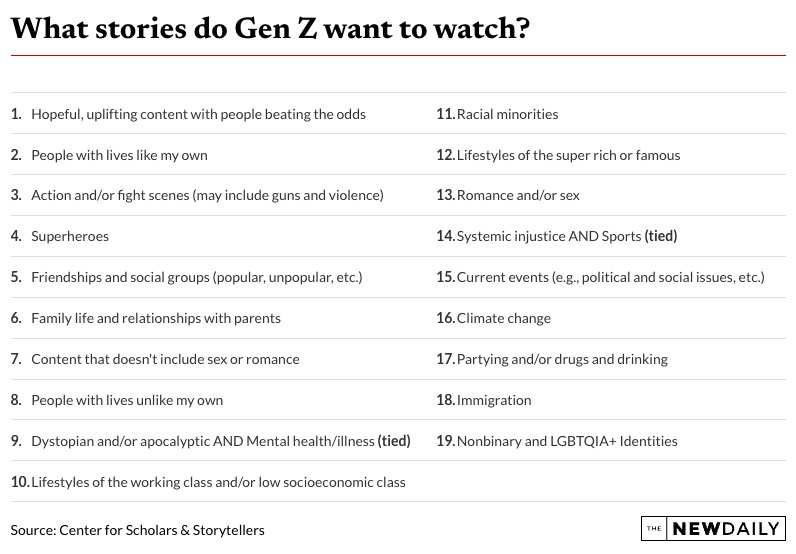
Streaming platforms’ recent shift back to weekly releases for new series is also likely causing some grumbles among Gen Z, with more than half preferring binge releases.
The younger generation would rather see hopeful, uplifting content in movies and TV shows over action and superheroes – which makes sense, given the majority also said they use entertainment media to “escape and take their mind off things”.
And despite popular YouTuber MrBeast coming under fire for filming his philanthropic efforts for the world to see earlier this year, his charitable nature saw him chosen as the No.1 most authentic media by Gen Z.
Divides remain
Despite Gen Z being famed for putting more care towards diversity, there was still a clear divide among American youth in media ideas and preferences.
For example, while the majority of ‘white’ youth would cast a white man as hero and villain, people of colour (POC) adolescents’ would cast a Black man as a hero and white man as a villain.
Slightly more POC Gen Z also found the portrayal of the ‘American Dream’ to be unrealistic than their white counterparts.
There was also an age divide, with more older Gen Z labelling the American Dream as unrealistic than younger members of the generation.
Trust placed in social media
Despite reports of high levels of misinformation being distributed on social media platforms such as TikTok, social media is considered the most authentic form of media by Gen Z.
Traditional media ranked second to last, even falling behind video games.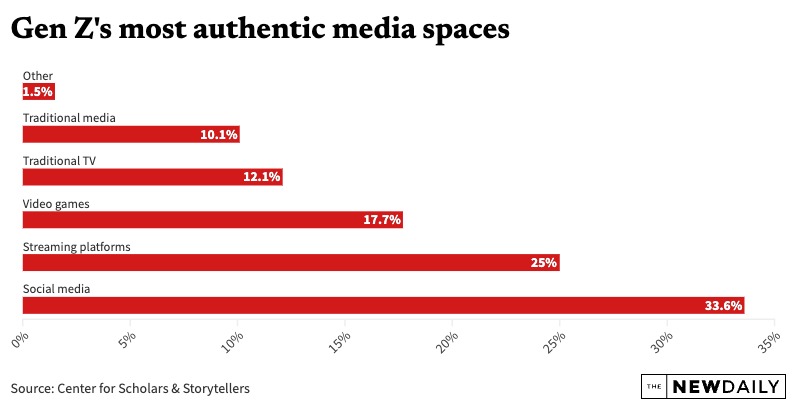
TikTok reigned supreme, voted the most authentic social media platform by 38 per cent of the surveyed youth who used social media.
Many Gen Z youth also used social media for various forms of activism, ranging from speaking up on issues to fundraising.

